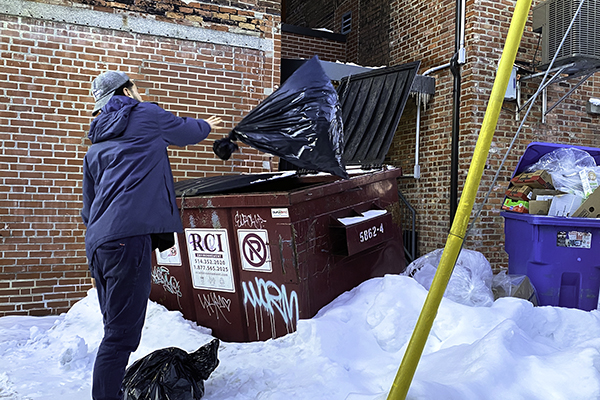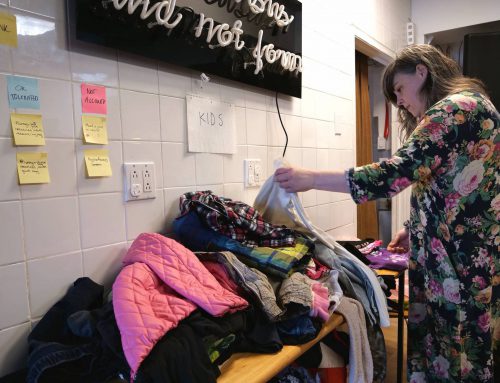BY Casandra Bentivoglio & Katelyn Thomas
The Aux Vivres restaurant chain is doing what it can to eliminate waste. But co-owner Mike Makhan says it isn’t easy.
“Some of the struggles that we are facing with trying to become a company that is zero waste is the complexity involved in finding the solutions to various problems.”
Makhan says that the restaurants partner with Compost Montreal to get rid of all the food scraps from their central kitchen, but it’s costly and takes a lot of organization.
“This is a problem that is expensive,” says Makham. “We need to find lower cost solutions for composting, for becoming zero waste, for packaging issues. In order to get to zero waste, it needs to be affordable.”
A map of Montreal illustrating the composting progress of each borough based on data from the City of Montreal’s website. Media by Casandra Bentivoglio.
Montreal plans on becoming completely zero waste by 2030. Their plan includes targeting six areas: reducing at the source, collecting organic materials, collecting recyclable material, increasing citizen participation, and economic innovation.
According to Second Harvest, Canada’s largest food rescue organization, 60 per cent of all food produced in Canada is wasted. Second Harvest also notes that 32 per cent of that waste is avoidable.
Martin Vézina, head of communications of Quebec’s Restaurant Association, says that it is possible to be zero waste. However it would take a lot of support from the city to make it work.
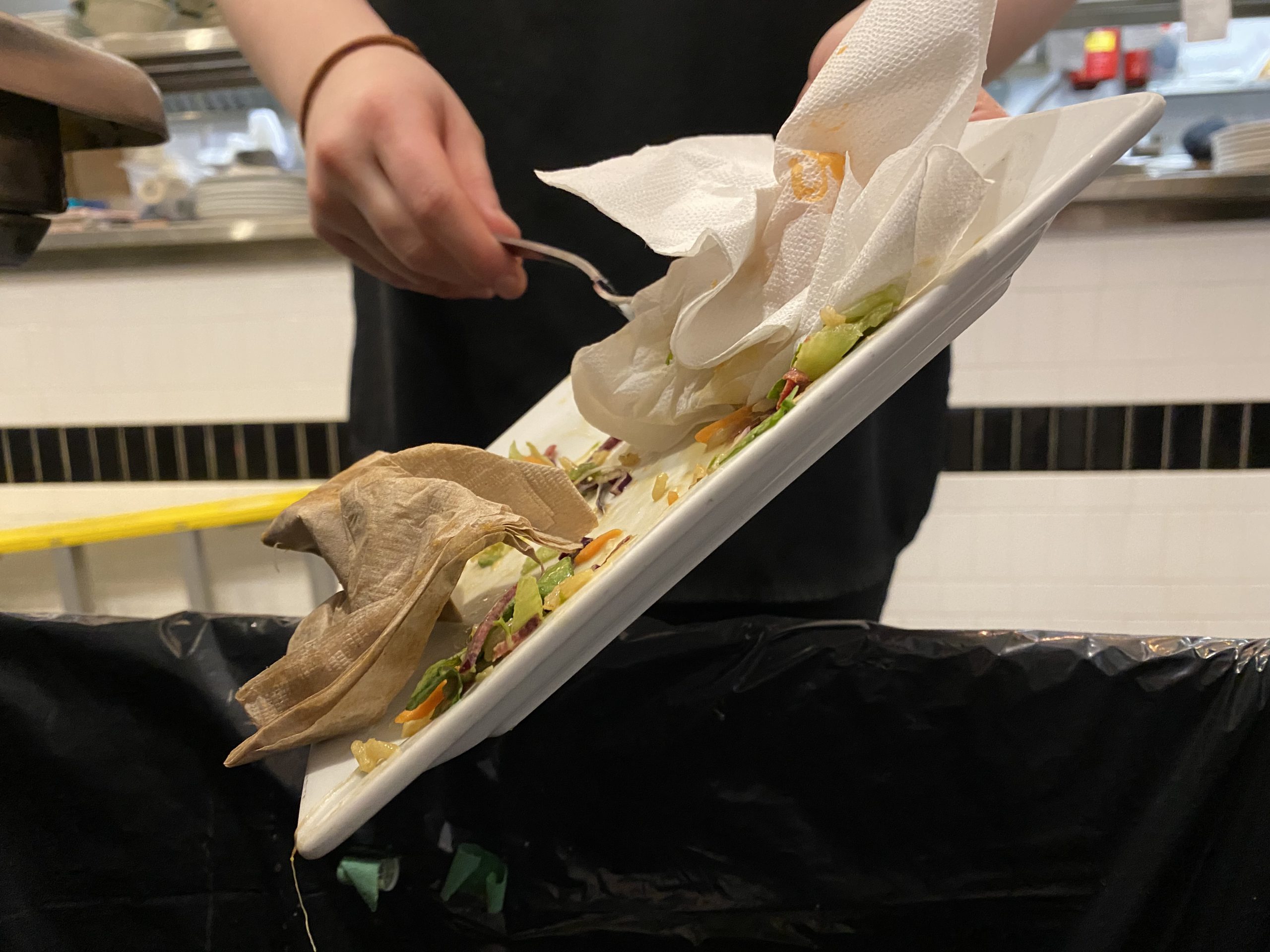
Food being thrown away. Photo by Katelyn Thomas.
“Concerning food waste, we’re ready [to be zero waste]. We’re just waiting for the city to provide the brown bins [for compost],” he says. “Restaurants don’t often waste their food. It’s not very economic to let food go to waste.”
Vézina says that often, any surplus a restaurant may have often goes to employees or is used for a special of the day. He also notes that some restaurants could provide surplus food to the community.
“[Restaurants] are doing [their best] when it comes to food waste,” says Vézina. “Maybe we need to go a little further when it comes to certain products. If we make the efforts and think of a harmonious transition. And if we provide collection options [for food waste], we can advance towards zero waste.”
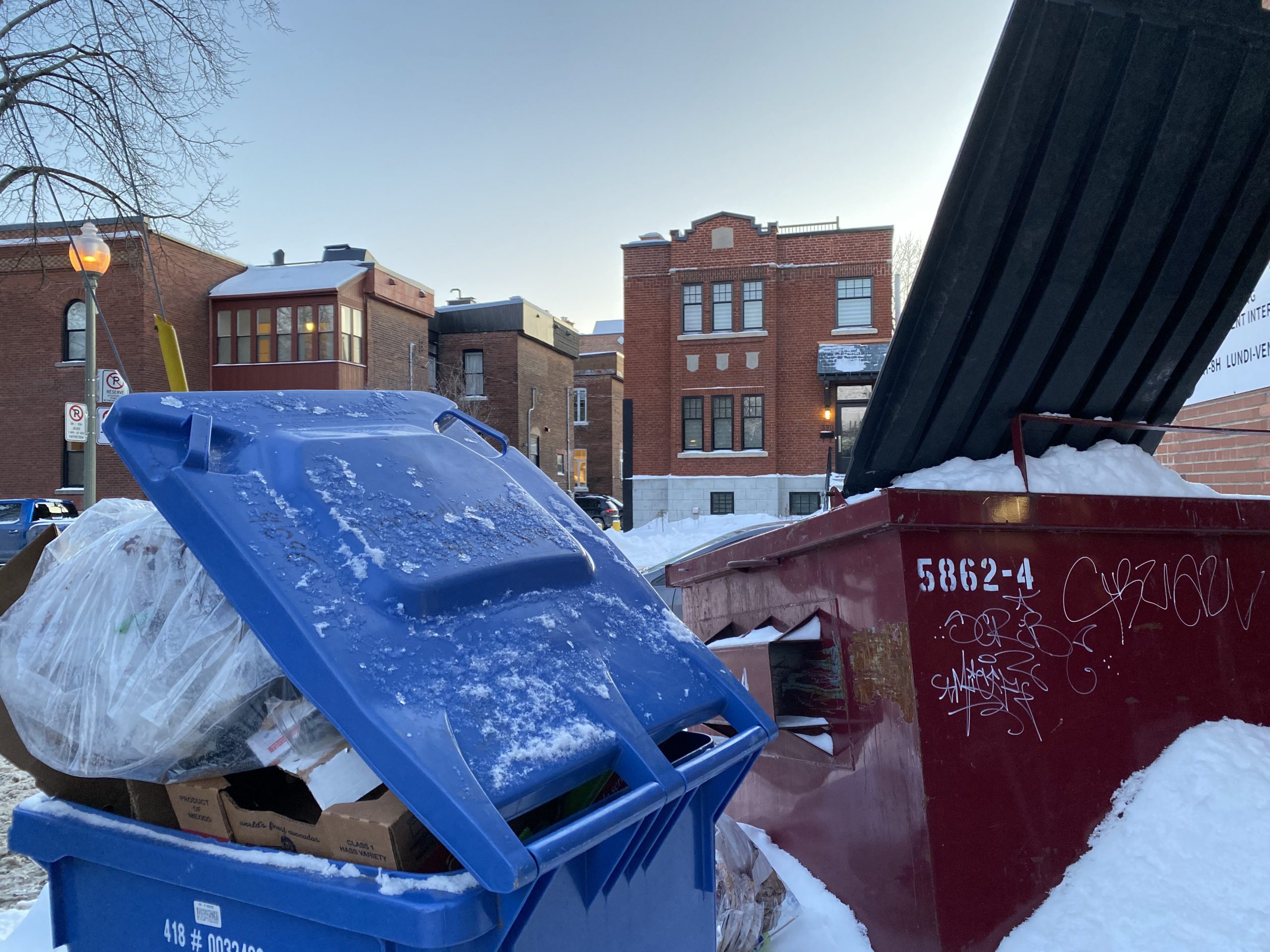
Trash and recycling bins to accommodate food waste behind a Montreal restaurant. Photo by Katelyn Thomas.
Chez Doris, a women’s shelter in Montreal, serves about 44,000 free meals each year.
“We typically receive food from [food bank] Montreal Harvest,” says the shelter’s director, Marina Boulos-Winton. “There’s a consortium of charities that, with the help of another charity, rent a truck and have a driver to go pick up donations of food because we have to go to the warehouse and select what we want. It’s quite a large quantity of food, but very often it’s lacking in meat.”
Boulos-Winton says the quantity of donations is usually an issue. Donations usually aren’t enough to make the same meal for everyone, and smaller quantities have to be enough to serve in a soup.
Although some restaurants do want to provide their leftover food, especially after events, it’s a lot more difficult for the shelter to deal with.
“It’s really not overly convenient and you can get prone to falling ill if the food has been out too long,” says Boulos-Winton. “It has happened to me where, with another agency more than 20 years ago, a very well established restaurant cooked turkeys for us. And in the transportation the turkeys went bad and many people ended up getting salmonella poisoning, which could kill people.”
Boulos-Winton sees the prospect of working with local supermarkets. “We have three local supermarkets nearby,” she says. “And we don’t benefit from their waste at all. We would love to. The closest supermarket that we’ve approached for [this] says that they use everything.”
Zero waste: One restaurant says it’s easy. One says it isn’t. Video by Katelyn Thomas.
Moisson Montreal does not accept leftover donations from restaurants for several reasons. These include the fact that they don’t distribute cooked food and that they can’t know if it had been kept properly.
According to Quebec’s Ministry of Agriculture, expiration dates only apply to items that have been opened and not kept in their proper conditions, where food can spoil and lose their freshness, taste, and nutritional value. Nevertheless, they mention that certain foods can still be consumed safely after the best-by date, if sealed and kept in proper conditions.
They also mention that certain foods like fresh fruit and vegetables, yogurt, butter and eggs can still be eaten after the best-by date. However, hummus, certain cheeses, and certain meat should not be consumed past the best-by date.
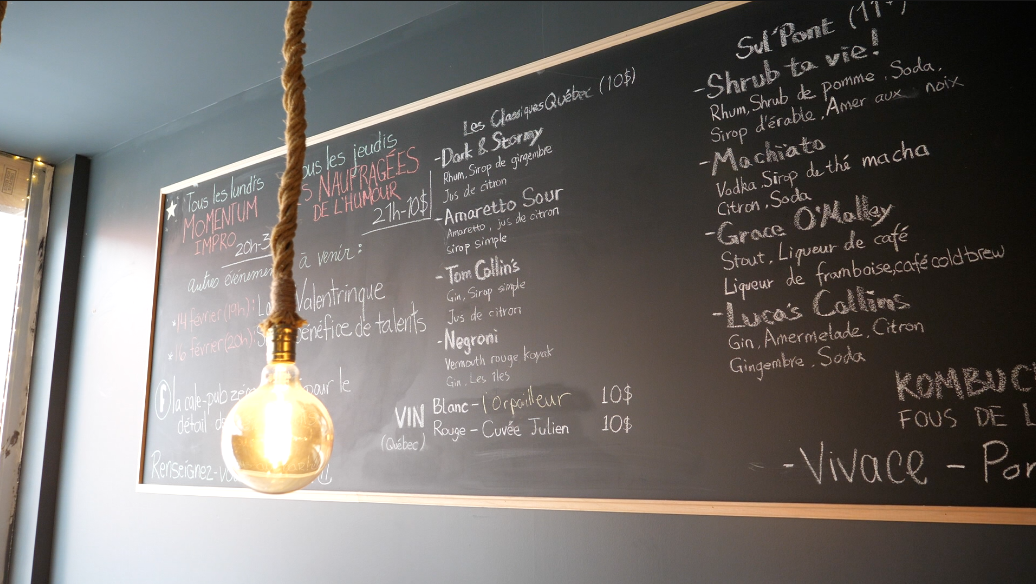
The Menu at zero waste restaurant La Cale. Photo by Katelyn Thomas.
David Côté is the co-founder of Loop, a Montreal-based company that takes surplus fruits and vegetables, and turns them into cold pressed juice. They also use day-old bread from bakeries to make beer. With any pulp from the products, they create vegan dog treats and pizza crusts.
They work with suppliers like Sobeys and Courshesne Larose to purchase fruits and vegetables that were rejected due to their appearance and any surplus that suppliers can provide.
“We started as a food waste reduction company,” says Côté. “Our main goal is to reduce waste, but to also change the industry behaviour. To actually inspire, at the industry level, and show people that they can actually have a good impact on the environment and possibly make more money by working with us and reducing their waste because we buy from them.”
Côté believes it’s very easy to be zero waste, especially if we consider composting.
“The world doesn’t change by playing small,” says Côté. “We need to play big and work with the big players and have a really big impact.”
